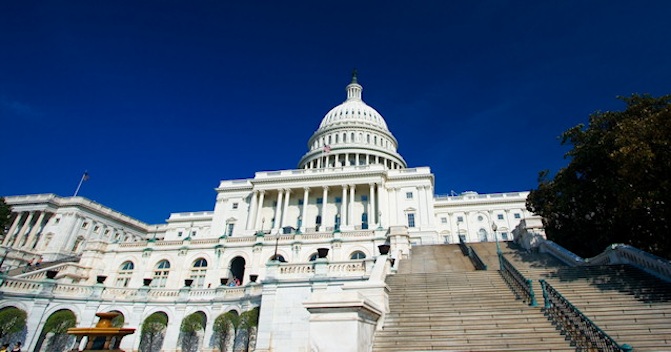The Senate’s anti-trafficking bill, which generated bipartisan support, has quickly turned into a battle over abortion language. After the bill unanimously passed the Senate Judiciary Committee, Democrats complained of the inclusion of the Hyde Amendment, which prohibits federal funds from paying for abortion, with exceptions. As it applies to this bill, funds cannot be used from penalties from traffickers which are to help victims.
Senator John Cornyn (R-TX), the bill’s sponsor, claimed that the language was made public, and, if anything was hidden, “it was hidden in plain sight to anybody who cared to read it.” He has also commented on the issue on his website.
Republican leadership offered the Democrats a chance to strip the language through an amendment, but this offer was rejected.
The Washington Times reported this breaking news headline: ‘Democrats filibuster trafficking bill, GOP to delay Lynch nomination.’ The title also refers to Senate Majority Leader Mitch McConnell’s (R-KY) move to delay a vote on the nomination of Loretta Lynch for Attorney General until the Senate has decided on this bill.
Planned Parenthood, which has aided and abetted child sex traffickers, has joined in abortion politics.
As Kristi Burton Brown noted, Planned Parenthood tweeted this:

And just like that, the bill turned into an issue of “anti-choice” men. Kristi Burton Brown has also suggested that such debate on the bill came to be as a result of Planned Parenthood and its allies causing such a fuss. This is a clear example of abortion-on-demand.
No matter which way you look at it, the bill’s current fate is objectively the fault of the abortion industry. This is especially the case if the Hyde Amendment has been included for some time, as the bill’s sponsor claims. Then it is an embarrassing fact that so many did not read the bill’s language thoroughly before supporting it. The Hyde Amendment has also been passed and included in parts of legislation before, since it first came to be in 1976.
John-Henry Westen, of LifeSiteNews.com also penned a piece on the matter, for The Hill, “Abortion expansion more important to Dems than rescuing women from sex slavery.” His piece is particularly noteworthy as it also explains how the Hyde Amendment relates to the bill:
First, and perhaps most importantly, the Hyde Amendment allows for abortions if the child is created through rape or incest, or if the woman’s life is in danger. Given that every single trafficked woman is repeatedly raped, and thus her child is the result of rape, it is a very real possibility that the Hyde Amendment’s limitations would actually be an enormous opportunity for abortionists to profit off of federal funds, and for traffickers to get their victims back on the street to be further dehumanized.
Regardless if one agrees with the exceptions already included in the Hyde Amendment, it should be a non-issue. Coming out against the bill for such language not only proves commitment to abortion first, but also demonstrates a lack of understanding on how the language one is opposing actually works.
Thanks to the abortion industry’s obsession with protecting abortion and their political allies, the Senate’s efforts to rightfully protect victims of trafficking, which would rightfully been a bipartisan effort, have been hindered.







